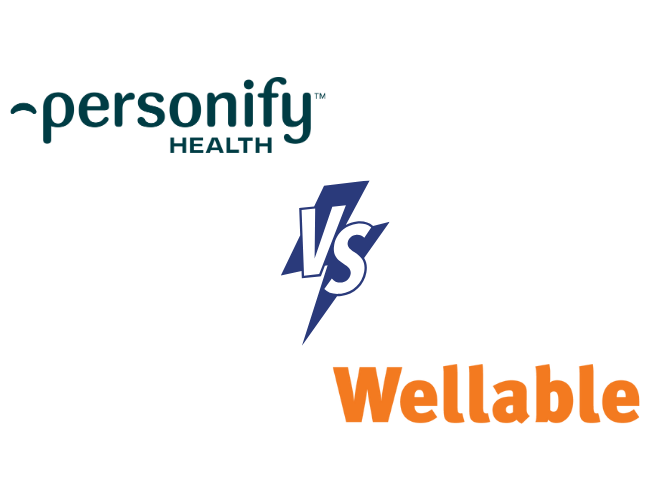BMJ Oncology recently published a global study that reveals a troubling trend: a significant rise in early-onset cancer cases, particularly among individuals under the age of 50. This raises questions about the collective health of the workforce, placing employers at the forefront of championing well-being.

This article dives into the global burden of early-onset cancer, explores specific risk factors, and explains the value of a holistic wellness program.
Pressed for time? Here’s a quick summary…
- Cancer rates soar: Between 1990 and 2019, early-onset cancer cases rose from 1.82 million to over 3.26 million, a 79.1% increase.
- Risk factors: Lifestyle choices such as diet (high in red meat and sodium and lacking in fruits, vegetables, and milk), tobacco use, and alcohol consumption are significant risk factors for early-onset cancer.
- Smoking cessation in focus: Tobacco use is a leading cause of early-onset cancers. Employers with a smoking cessation program not only challenge this threat but champion employee health, marking a stride toward a cancer-resilient workforce.
- Workplace wellness hub: To help combat early-onset cancer cases among employees, employers can take proactive measures: ensuring their workforce is well-informed about the importance of regular preventive exams, offering a wellness program that addresses lifestyle behaviors contributing to cancer risk, and refining these programs based on employee feedback for better efficiency.
Unpacking The Numbers

Between 1990 and 2019, early-onset cancer cases rose from 1.82 million to over 3.26 million, a staggering 79.1% increase. The study defined early-onset cancer as a diagnosis that occurs between the ages of 14 and 49. The main contributors to this surge include:
- Lung Cancer: In 2020, lung cancer was the main cause of cancer death (1.8 million deaths).
- Breast Cancer: Breast cancer accounted for the most early-onset cancer cases (16.5%) and early-onset deaths (12.84%) in 2019. The US recommended age for breast cancer screenings was lowered from 50 to 40.
- Colon Cancer: Colon cancer is an increasing concern, and US screening recommendations have been lowered from age 50 to 45 due to the rise of early-onset cases.
- Stomach Cancer: Stomach cancer showed one of the highest mortality rates in 2019 of the 29 cancers studied.
- Prostate & Nasopharyngeal Cancer: The incidence rates of early-onset nasopharyngeal and prostate cancers showed the fastest increases over the past 30 years.
Risk Factors

Family history and specific genetic markers can influence an employee’s susceptibility to developing cancer at a younger age. Mutations in genes like BRCA1 and BRCA2 (associated with breast and ovarian cancer) or Lynch syndrome (linked to colorectal cancer) are examples of the many genetic factors contributing to this risk.
While genetics certainly play a role, lifestyle factors are primarily contributing to the rise in early-onset cancer cases. Understanding these cancer catalysts is crucial to combat this growing health concern:
- Diet: A diet high in red meat and sodium and lacking in fruits, vegetables, and milk has been linked to an increased likelihood of developing various types of cancer. Specifically, a high consumption of red meat is associated with an increased risk of colon cancer.
- Tobacco Use: Tobacco remains a leading cause of preventable deaths worldwide, and its link to cancer is well-established. Smoking not only affects the lungs but can also lead to cancers in other parts of the body, making it a significant contributor to early-onset cancer.
- Alcohol Consumption: Excessive alcohol consumption is another concerning contributor to early-onset cancer, particularly for cancers of the mouth, throat, esophagus, liver, and breast.
- Environmental Exposure: Exposure to various air pollutants, radiation, and chemicals plays a prominent role in developing nasopharyngeal cancer, among others.
- Excessive Weight & Obesity: The broken US food system has skyrocketed obesity rates.Obesity has been linked to an increased risk of several types of cancer, including breast, colon, endometrial, and pancreatic.
- Physical Inactivity: “Sitting is the new smoking” for a reason. A sedentary lifestyle is contributing to the obesity epidemic, increasing the risk of early-onset cancers.
- Excessive Sun Exposure: While sunlight is essential for well-being, overexposure to UV radiation from the sun or tanning beds can lead to skin cancer. Skin cancer cases, including melanoma, are on the rise among younger individuals due to excessive sun exposure habits.
- Infections: Certain viral and bacterial infections have been linked to an elevated risk of cancer. Human papillomavirus (HPV), Hepatitis B and C, and Helicobacter pylori are among the infectious agents associated with increased cancer risk.
- Immunosuppression: A compromised immune system can leave individuals vulnerable to various health challenges, including certain cancers.
- Use Of Certain Medications Or Treatments: Some medications and treatments, especially when used improperly or for prolonged periods, can raise the risk of cancer.
The Workplace As A Wellness Hub
Beyond its conventional role as a space for productivity, today’s workplace has embraced a new and vital responsibility: fostering employee well-being.

Organizations are increasingly becoming champions of employee health, surpassing traditional healthcare benefits. This transformation is propelled by the understanding that when employees feel their best, they perform their best.
Corporate wellness programs provide employees with the tools, knowledge, and motivation to take charge of their health. These programs drive positive organizational outcomes, from reducing absenteeism and increasing job satisfaction to enhancing overall productivity and performance.
Wellable’s wellness platform makes well-being engaging, accessible, and personalized. By offering on-demand classes, wellness challenges, tobacco cessation programs, and more, Wellable helps employees enhance a range of lifestyle factors. Investing in such a program can mitigate the risk of various employee health issues, including certain types of cancer. Incorporating a wellness program demonstrates authentic care for the workforce, providing not only the opportunity to earn a livelihood but a place to invest in personal health.
Empowering Through Information
Regular health screenings are the frontline defenders against the advance of cancer. They can make all the difference in catching the disease at its most manageable stages.
Real-life stories, like Queen Stewart’s, serve as reminders of the importance of early detection. Stewart’s journey highlights that cancer doesn’t discriminate by age. She discovered a lump when she was too young for insurance-paid screenings—a struggle echoed by many individuals.
“It had me create a sense of urgency in my life to live now, to find joy, to be more present for my family.”
Queen Stewart, lawyer and mother of two
In the quest to combat early-onset cancer, knowledge is power. As an employer, ensuring employees are well-informed and proactive about regular health checks can be a transformative act of care. Here are some strategies to empower employees through information:
- Educational Initiatives: Host regular workshops or webinars on the significance of screenings, emphasizing that they’re not specific to certain age groups. Use Queen Stewart’s story and others like it to illustrate real-world scenarios.
- Flexible Scheduling: Allow employees the flexibility to attend medical appointments, including screenings, without fearing productivity loss. Encourage a culture of health-consciousness.
- Healthcare Resources: Provide easy access to healthcare resources and information within the workplace. Offer guidance on where and how employees can schedule screenings.
- Insurance Coverage: Advocate for comprehensive health insurance plans that cover screenings, regardless of age or risk factors. Consider subsidizing the costs to further motivate participation.
Smoking Cessation In Focus

Tobacco use remains a leading cause of early-onset cancers. While the health risks of tobacco use are widely acknowledged, the subtle presence of employee smoking persists, posing a serious threat. Furthermore, the increasing prevalence of e-cigarette use, evident with one in every 10 US young adults using them regularly, underscores concerns regarding the health trajectory of younger generations.
Organizations that invest in smoking cessation programs not only enhance employee well-being but also help combat cancer. These programs can offer customized quit plans and personalized coaching to address individual triggers and smoking patterns. By providing such programs, employers can significantly enhance the chances of their employees quitting smoking, thus reducing the risk of cancer development.
Feedback & Iteration
Workplace health promotion is continuous. It’s not a one-time fix, but an ongoing commitment to employee well-being.
One pivotal aspect is regular engagement with employees. Listening to their feedback, understanding their concerns, and aligning health initiatives accordingly ensures that wellness programs remain relevant and effective.
By continuously iterating and refining programs based on employee input, employers display genuine support for their workforce’s health and well-being. This commitment sets the stage for a healthier, happier, and more cancer-aware workplace.












